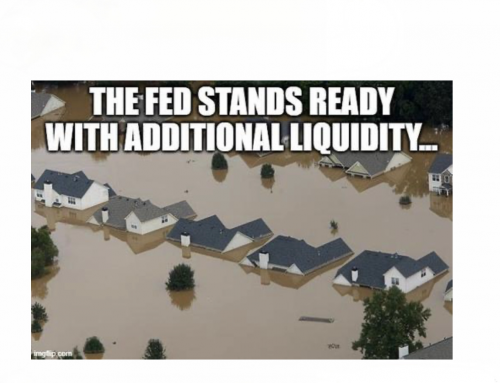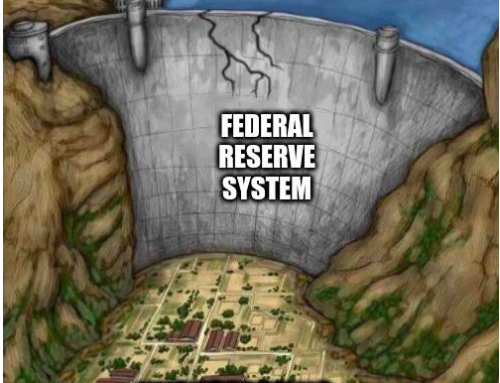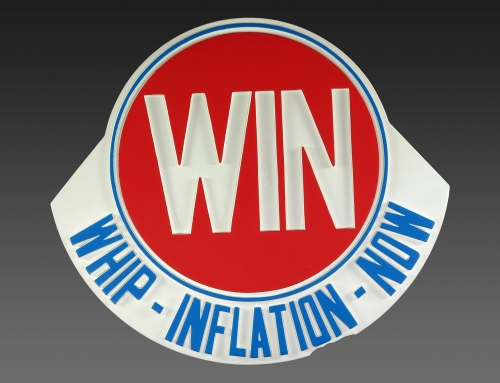Part 1: The Battle for America’s Economic Future
February 24, 2021
For over a hundred years, the concentration and control of our nation’s wealth by the elites of government and finance has eroded the prosperity and personal freedom of those living in America’s heartland. During this period of time, Middle America grew weary of watching the wealth of the “1%” seemingly grow without limit.
IN 2016, working families showed they no longer believed that the flow of their money, jobs and factories out of the country was either necessary, inevitable or somehow to their benefit. Communities and small towns were deteriorating. Parents began to suspect that their kids’ economic future had been traded for the globalists’ profit. And they figured out that they’d been lied to by the elites’ claim that open borders and millions of illegal immigrants created a more prosperous nation.1
Middle America was ready for a real change. The globalist policies of the past were rejected and a movement spontaneously arose to elect a disruptive counterforce: President Donald Trump, the indomitable outsider.
What seemed to be an act of desperation proved to be the right choice.
In contrast to politics-as-usual, Donald Trump renounced globalism and embraced national sovereignty. American workers and their families were his top priority, and he initiated common sense, practical solutions to what were previously considered entrenched economic problems. His policies strengthened free enterprise while rejecting crony capitalism and socialism. He dismissed his critics’ hypocritical moralizing and their embrace of identity politics, government paternalism and a new world order.
But the Trump reprieve proved short-lived. Now with the election of the Biden Administration, the governing elites in D.C. and various state capitols are advancing a socialist, government-controlled economy.
America’s repeated mistake is to hope that those who lead our nation will practice common sense and implement practical solutions. Instead, the D.C. establishment’s economic policies continue to be self-serving, counter-productive, and often corrupt.
But Americans are not willing to give up and surrender to the would-be controllers in Washington. We have awakened to the necessity of finding an alternative to business as usual. As believers we must go back to our roots and seek a Christian understanding of human flourishing.
The purpose of this blog, The Fed, Money and Debt, is to consider current financial, business and market activities from a Christian perspective.
Our complementary blog, Christian Economics, explores the question of human flourishing from a primarily theological perspective. This blog, The Fed, Money and Debt, deals more specifically with contemporary economic issues appearing on the horizon. As competing economic systems strive for supremacy, biblical wisdom and a Christian perspective will be much needed to keep us from being tossed back and forth by the waves.
Future posts will address:
-
What is the Federal Reserve System? What was its original purpose?
-
Is the Fed an agency of the U.S. Gov’t?
-
What is Quantitative Easing? How does the Fed create liquidity?
-
Will the Fed create a digital currency to preempt cryptocurrencies?
-
What are negative interest rates? What are their consequences?
-
What is fiat money? How do governments manipulate currency in order to control economies?
-
Why is the dollar the reserve currency of the world? Who opposes it? Why? What are the alternatives? What about Gold?
-
What is Modern Monetary Theory and who is advocating for debt without limits?
-
Why is there low inflation despite vast money creation?
-
Why the rise of Socialism and what it reveals about our culture?
-
What is the Great Reset? Who advocates for it and why?
-
Currency and trade wars, China and more…
Coming: #2. America’s Economic Fate in Now Being Decided
1 For a Christian view of immigration based on the whole counsel of Scripture, see Wise Welcome, the online booklet published by the American Association of Evangelicals (AAE) @ AmericanEvangelicals.com





